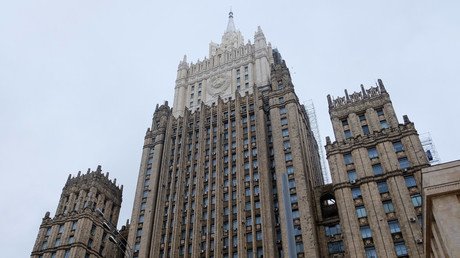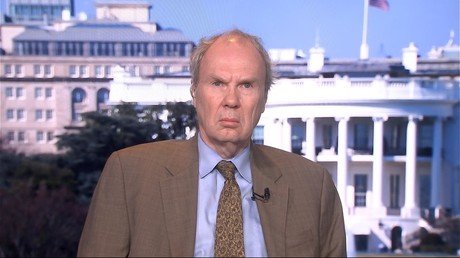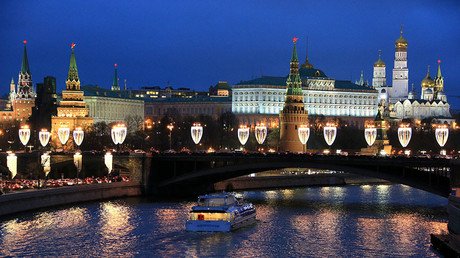Risks of interstate conflict higher than any time since end of Cold War - DNI chief
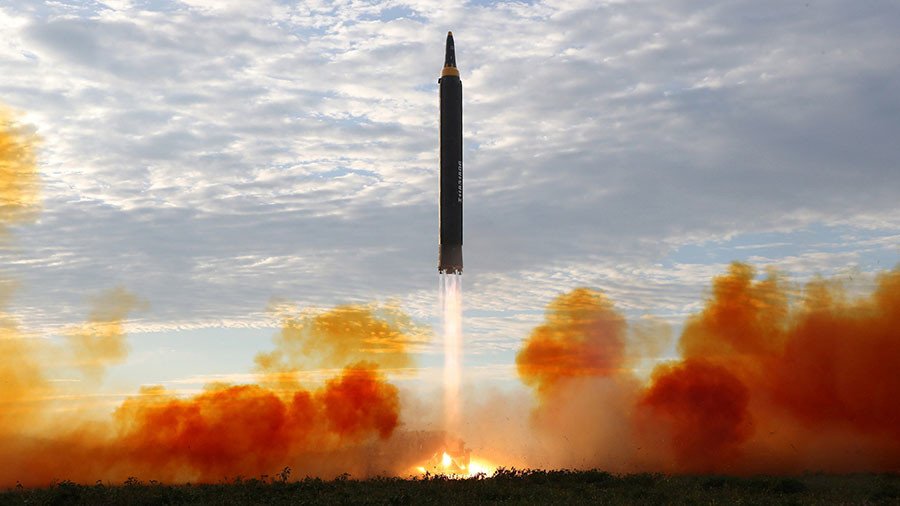
The risk of inter-state conflict is higher now than at any time since the end of the Cold War, according to US Director of National Intelligence Daniel Coats.
The most immediate threats over the next year will come from North Korea and from “Saudi-Iranian use of proxies in their rivalry,” Coats said during a Senate Intelligence Committee hearing on Tuesday.
“At the same time, the threat of state and non-state use of weapons of mass destruction will continue to grow,” he added.
His statement was accompanied with a detailed assessment of worldwide threats to intelligence community.
Cyber threats
Coats referred to Russia, China, Iran, and North Korea as the “greatest cyber threats” to the US in the next year. According to Coats the four nations are “using cyber operations as a low-cost tool of statecraft.”
“We assess that they will work to use cyber operations to achieve strategic objectives unless they face clear repercussions for their cyber operations,” he said.
He also said the countries are “testing more aggressive cyberattacks” to be used against the US.
Speaking specifically of Russia, Coats said the US expects that “Russia will conduct bolder and more disruptive cyber operations during the next year, most likely using new capabilities against Ukraine.”
His statements about Russia come amid ongoing — and unsubstantiated — claims that Moscow meddled in the US presidential election and had ties to the Trump campaign. The claims were repeated numerous times during the hearing by Coats and other heads of intelligence agencies who were present at the hearing, yet they provided no examples or evidence of how Russians may be interfering in elections.
Coats also claimed that China will continue to use cyber espionage and “bolster cyberattack capabilities” to support Beijing's national security priorities. “Most detected Chinese cyber operations against US private industry are focused on cleared defense contractors or IT and communications firms whose products and services support government and private sector networks worldwide,” according to the national intelligence director.
When it comes to cyber threats posed by North Korea, Coats said the US expects Pyongyang to use cyber operations to raise money and gather intelligence, or to launch attacks on South Korea and the US. He said it likely has “a number of techniques and tools” which it can use for various offensive operations including DDOS attacks, data deletion, and deployment of ransomware.
It comes amid ongoing tensions between Washington and Pyongyang, following North Korean missile tests and joint US-South Korea military exercises which have ruffled Pyongyang’s feathers on numerous occasions.
Syria
Despite US support of so-called moderate rebels throughout the Syrian conflict, Coats went on to note that the Syrian opposition is “probably no longer capable” of overthrowing President Bashar Assad or overcoming its increasing military disadvantage.
Coats said the US believes the Syrian government “has not declared all the elements of its chemical weapons program” to be in line with the Chemical Weapons Convention (CWC) and that it has the capability to launch further attacks. This is despite the fact that Damascus destroyed all of its sarin stockpiles under a deal brokered between Russia and the US in 2013.
He went on to refer to the sarin gas attack in Khan Shaykhun on April 4, 2017, once again claiming the Syrian government was behind the attack which allegedly claimed the lives of between 74 and 100 civilians.
ISIS & Al-Qaeda
Coats said that Islamists, most notably Islamic State (IS, formerly ISIS) and Al-Qaeda, continue to pose threats to US interests, while US-based “homegrown violent extremists” will remain the most prevalent threat in the United States.
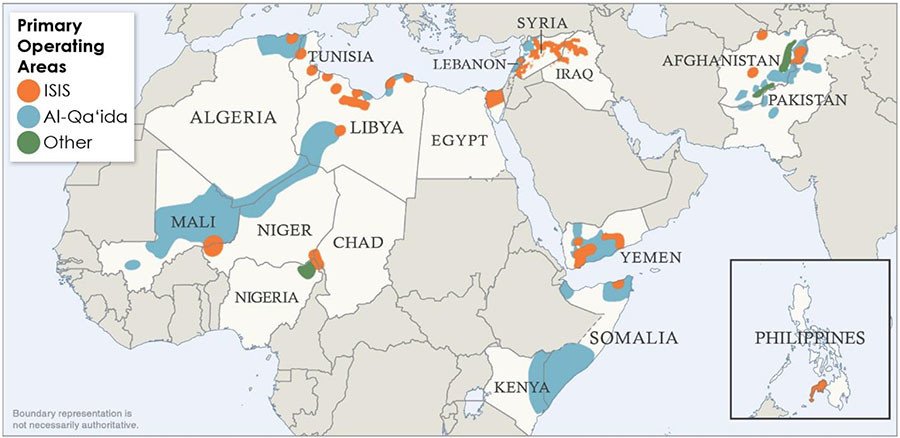
He also said he expects IS to focus on regrouping in Syria and Iraq, enhancing its global presence and planning international terrorist attacks in their home countries. IS will likely maintain a “robust insurgency” in Iraq and Syria as part of its strategy to enable the reemergence of its so-called caliphate.
In its alleged effort to fight IS in Syria, the US-led coalition attacked pro-government forces in Deir ez-Zor province earlier this month, injuring 25 members of the unit. The move prompted Russia’s Ministry of Defense to accuse of Washington of merely seeking to capture “economic assets” rather than fighting terrorism.
As for Al-Qaeda, Coats said it will “almost certainly” remain a major actor in global terrorism. He also noted that Hezbollah will continue to pose a threat to the US.

